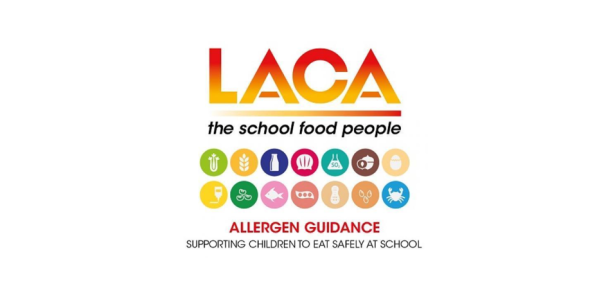
The LACA Allergen Management Guidance for Catering in Education, which was launched during Forster’s time as LACA chair, aims to support schools, caterers and pupils in understanding the best practice with regards to managing allergens safely.
The guidance document and the Risk Analysis Process (RAP) form is available to LACA members. In 2024 a team of professionals joined forces to review the RAP updating the guidance and risk assessments as well as adding new case studies.
Forster concluded his opening speech by saying: “Safety is the number one priority. Thank you for your time and commitment to the process.”
The panel discussion involved:
- Jacquie McPeake, JACS Ltd
- Megan Waring, director of Nutrition at Caterlink Limited
- Rachel Ellis, director of communications at Natasha Allergy Research Foundation (NARF)
Waring noted there had been a significant rise in allergies both in the volume and multiple allergies per child. This had a ‘huge’ impact on the workload at Caterlink who created 1,800 menus. She concluded that the number one priority should be the pupils with allergies and that the LACA Allergen Management Guide was useful to drive conversations and achieve a joined up approach.
Ellis spoke about the upcoming Natasha Allergy Research Foundation’s Allergy School that is launching is January 2025. It contains free videos and resources to help all children have a more positive experience at school. She provided an update on the work of the Natasha Allergy Research Foundation, which is currently undertaking clinical trials with young people up to the age of 23, using immunotherapy to help them build up a tolerance for the common allergens cow’s milk and peanuts.
McPeake spoke about the importance of the Near Miss Campaign as a valuable learning opportunity of people. She said it was vital to report near misses so that the problem can be resolved next time. McPeake noted that on average schools were doing well with reporting near misses.